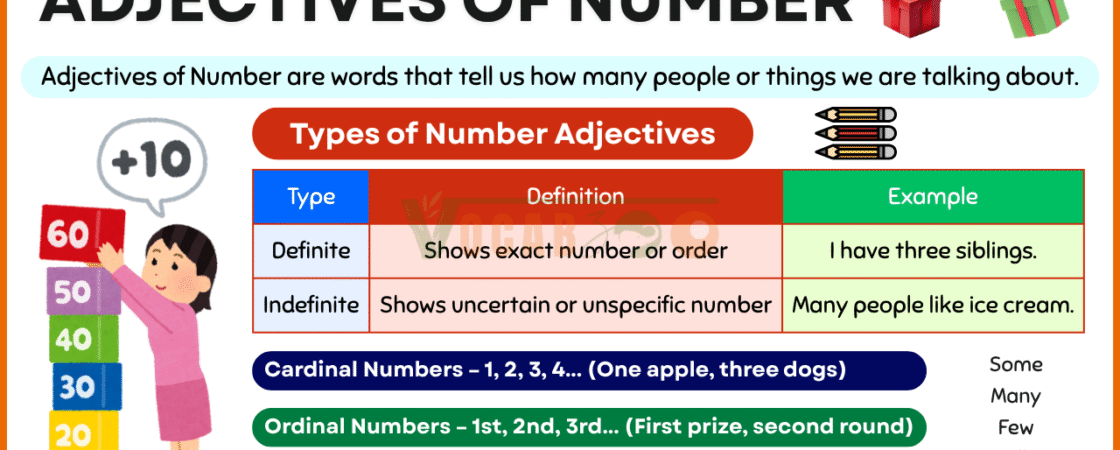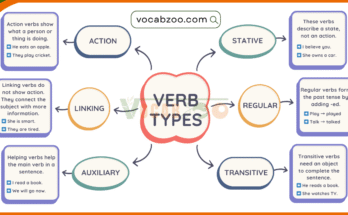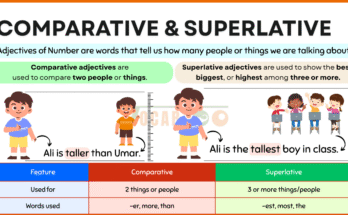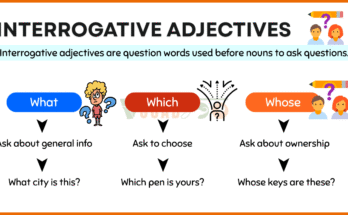Do you ever talk about how many people or things there are? That’s where adjectives of number help. In this blog post, you will learn the difference between definite and indefinite adjectives of number and how to use them in simple English. These words help you describe quantity in a clear and correct way.
You may also need to learn more types of adjectives to improve your speaking and writing skills.
What are Adjectives of Number?
Adjectives of Number are words that tell us how many people or things we are talking about. These adjectives help us understand quantity in numbers—whether it’s exact or not-so-exact.
In short:
They answer the question: “How many?” or “In what order?”
Two Main Types of Number Adjectives
We won’t throw math at you (you’re safe here), but we do need to look at two kinds of number adjectives:
1. Definite Numeral Adjectives
These adjectives give a clear number or position. No guessing here! We know exactly how many or in what order.
Types of Definite Adjectives:
- Cardinal Numbers – 1, 2, 3, 4… (One apple, three dogs)
- Ordinal Numbers – 1st, 2nd, 3rd… (First prize, second round)
- Multiplicative Numbers – double, triple, quadruple if you’re feeling fancy
Common Definite Adjectives:
One, Two, First, Second, Third, Double, Triple
Examples:
- She has two cats that act like they own the house.
- This is my first time baking… and possibly the last.
- He gave me a double portion of fries – now that’s true love.
2. Indefinite Numeral Adjectives
These adjectives do not tell the exact number. They’re used when we don’t know or don’t care to say the exact count.
Common Indefinite Adjectives:
- Some
- Many
- Few
- Several
- All
- Any
Examples:
- I invited some friends, but only the hungry ones showed up.
- Many people tried the new café – half of them stayed for the Wi-Fi.
- He gave few answers during the exam. Mostly wrong ones.
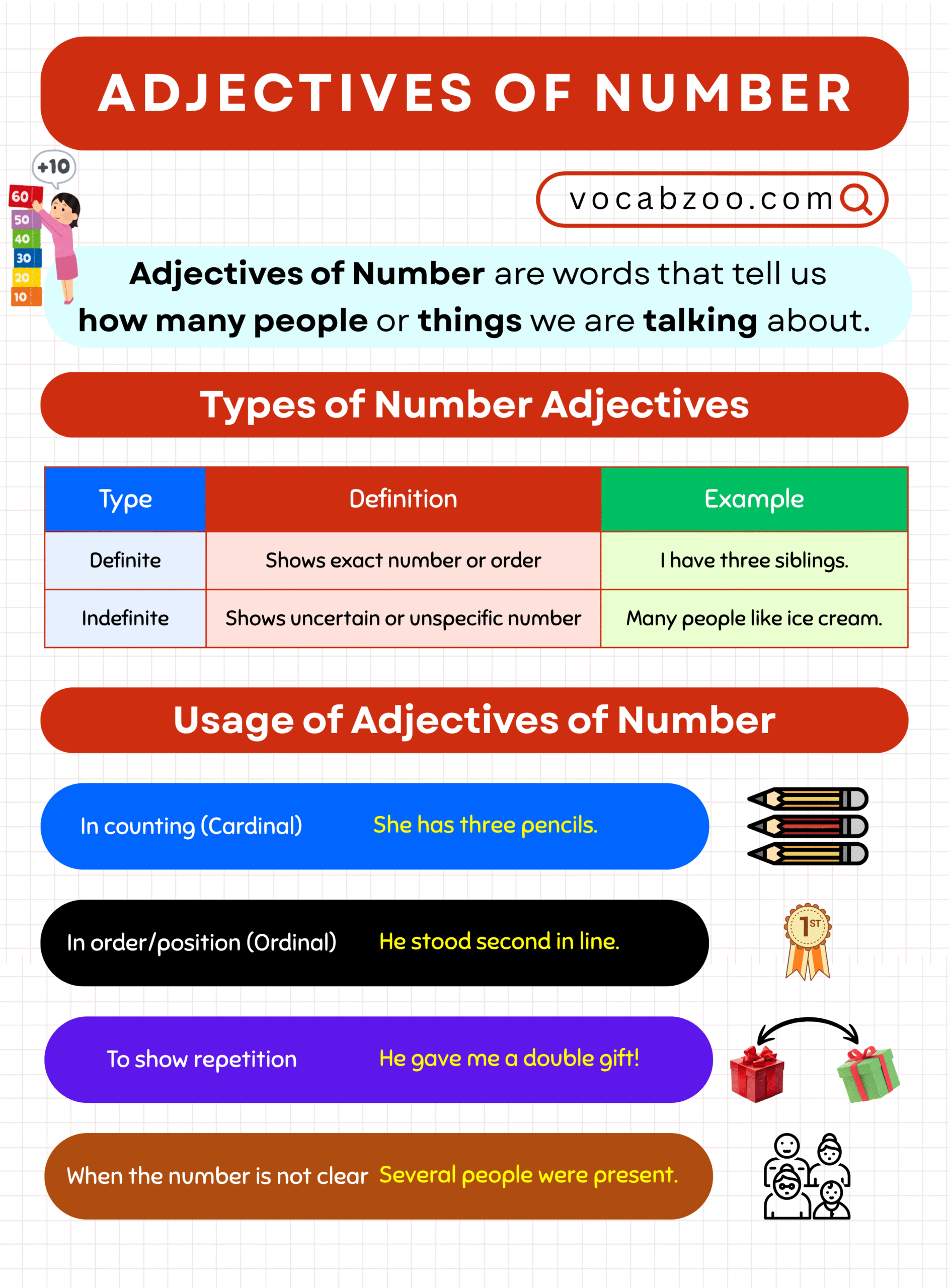
Usage in Different Contexts
Adjectives of Number are used in different ways depending on the context. Let’s see:
In counting (Cardinal)
- She has three pencils.
In order/position (Ordinal)
- He stood second in line.
To show repetition (Multiplicative)
- He gave me a double gift!
When the number is not clear
- Several people were present.
Definite vs Indefinite Adjectives
| Type | Definition | Example |
|---|---|---|
| Definite | Shows exact number or order | I have three siblings. |
| Indefinite | Shows uncertain or unspecific number | Many people like ice cream. |
Example Sentences of Number Adjectives
- I have three pencils in my bag.
- She came first in the race.
- We saw five ducks near the pond.
- He scored the second highest marks.
- There are four chairs in the room.
- The cat gave birth to two kittens.
- My house is the third on the street.
- She bought six apples from the market.
- They have one car and a bike.
- He got a double portion of dessert.
- I have some friends in this school.
- Many people enjoyed the concert.
- Few students know the answer.
- She has several books on this topic.
- There are some birds on the tree.
- All the students passed the test.
- He didn’t make any mistakes.
- Many children love ice cream.
- I saw several stars last night.
- Few people attended the meeting.
- He has two brothers and many cousins.
- She found several coins in the drawer.
- We planted ten trees in the garden.
- Some dogs are barking outside.
- The first chapter is easy.
- All seats were already taken.
- I waited for the second bus.
- They received a triple reward for winning.
- He solved five questions in five minutes.
- Few people understand old poetry.
Quick Practice Time!
Match the adjective of number to its type:
- First – __________
- Several – __________
- Five – __________
- Many – __________
- Double – __________
Answers:
- Definite (Ordinal)
- Indefinite
- Definite (Cardinal)
- Indefinite
- Definite (Multiplicative)
Read More
